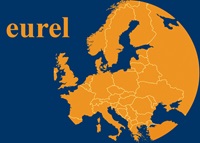The paper will map the topic of religious identity and belonging in stories told by the refugees from Syria, Iran and Afghanistan. Exploring the multifaceted dimensions of migration is essential, considering its complex evaluation through diverse lenses, ranging from numerical data and policy analysis to personal narratives. There persists a compelling call for a “bottom-up” perspective, urging us to delve into the lived experiences of individuals. While we cannot have direct insights into people's lived experiences, narratives as expressions of experiences can help to understand better the dynamics of migration in the contemporary world. By mapping the topic of religion in stories by refugees (n=23) from Syria, Iran and Afghanistan, this paper will aim to explore what articulation of religious meaning arises out of the reflection on their migration experiences. The research was conducted by applying grounded theory research. This qualitative method of interpretation was used to unravel how interviewees construct their experiences and identities through narratives, revealing subjective perspectives and selectively depicted realities shaped by social, cultural, and personal factors over time. According to socialization theory, the religious attitudes formed during childhood and youth predetermine religiosity in adulthood. Nevertheless, later experiences may change the religious attitudes. Migration and flight for refugees represent major life turns that create new experiences. Those experiences can be so powerful that they may cause a transformation of religiosity. In the refugee stories, religion is discussed in multifaceted way – as a marker of race, an ideology, a tradition, a source of support, and a means of organizing personal and social life. Mapped theme – negotiating the issues of religious identity and belonging – offer insight into the multifaceted nature of migration experiences and their intersection with religious aspects. However, it also underscores the challenge of grasping a singular “truth” or narrative, given the diversity of perspectives and experiences within immigrant communities. To give a detailed answer on the question how does migration affect religiosity and vice versa, and to draw conclusions, are tasks for the future research founded on the most extensive examination of data.
- Poster

 PDF version
PDF version

